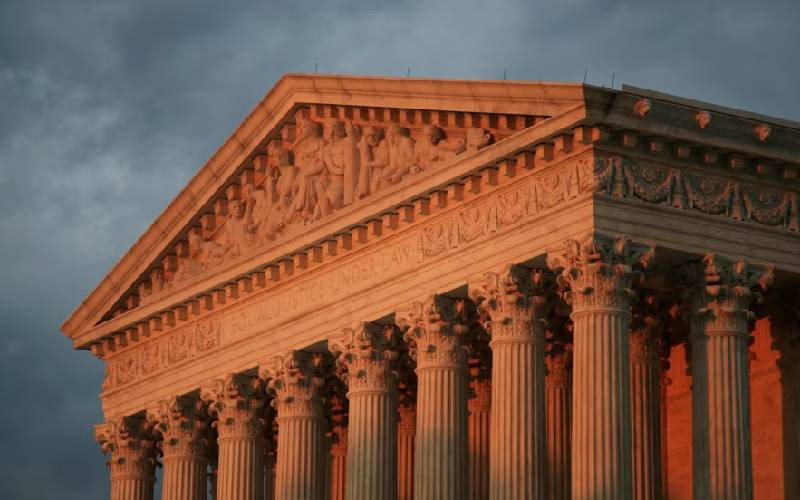Two events across the Atlantic this week highlighted the tremendous depths to which integrity, propriety and good faith have suffered in governance. In the history of democracy and the rule of law, two nations have been recognised as the leaders in respecting the letter of the law and its spirit.
On its part, the United Kingdom has so believed in the nobility of its leadership that it never deemed it necessary to have a written constitution. Instead, its constitutional rules and principles are based on various statutes, court decisions and conventions.
Across the Atlantic, the US has been governed by a written constitution since it’s beginnings. But even here, many of the restraints on the abuse of power have been defined by convention and the belief that there are certain areas that those granted the privilege of leadership would not go, even if the law did not expressly forbid them. It is in these two countries that these long-held assumptions have been severely tested in the recent past.
First the United Kingdom. In the last three years since David Cameron took the worst gamble of his political life and decreed a referendum, the country has dithered on the appropriate nature of exiting Europe. Ultimately, the management of the exit has been inherited by the current UK Prime Minister, the bombastic Boris Johnson. Unlike previous Prime Ministers, Boris has the tendency to operate at the margins on various issues.
Misled the Queen
One of his major actions, once in power, was to advise the Queen to prologue Parliament for the longest period, ostensibly to enable the government to prepare its legislative and programmatic agenda. It was not lost on many observers that the effect of the prorogation was to deny Parliament the ability to put any checks on the PM’s plan to exit the EU by October 30, with or without a deal.
Effectively the PM misled the Queen to achieve an undisclosed political end. That is a travesty of the law and Supreme Court rightly took the very unusual step of quashing the prorogation and thus placing decisions of the Crown and the government under judicial scrutiny.
In this same week, across the Atlantic, the US House of Representatives indicated it was commencing an impeachment inquiry on President Donald Trump. While many accusations of misconduct have been leveled on President Trump, this week’s allegations look serious.
It has transpired that in July, President Trump requested the Ukrainian President to dig up dirt of the son of Joe Biden, Trump’s foremost challenger, and may have used leverage of American aid to Ukraine to achieve this end. If found to be true, this would be a grievous assault on the rule of law by a President.
Even in a polarised Washington most people believe that President Trump, who also swims on the margins, may have gone too far. What distresses most people and leaves them cynical about politics, is that despite this affront to the law, the political dynamics of the two Houses of Congress may leave Trump untouched and may even rally his base, increase turnout, and deliver him a second term.
These two events highlight the inadequacies of the law where ill motive and impropriety are resident in those granted the privilege to lead. While we can point fingers to these nations that we generally look up to, this lack of propriety at different levels of leadership is what ails Kenya. Yet we somehow believe that our problems can be resolved by more law including constitutional amendments. Nothing could be more naïve.
While the law can put some level of restraint on leadership, if the leaders we elect are principally propelled by selfish and other ill motives, the law, however, well-crafted will be twisted and abused by them to our detriment. Our focus must therefore continually be on ensuring that the electoral process produces persons of principle who will not be exploiting the law for ulterior motives. How Kenya can increasingly get such leadership should exercise the energies of those who love Kenya more than making more law and amending constitutions.
- The writer is an Advocate of the High Court of Kenya
 The Standard Group Plc is a
multi-media organization with investments in media platforms spanning newspaper
print operations, television, radio broadcasting, digital and online services. The
Standard Group is recognized as a leading multi-media house in Kenya with a key
influence in matters of national and international interest.
The Standard Group Plc is a
multi-media organization with investments in media platforms spanning newspaper
print operations, television, radio broadcasting, digital and online services. The
Standard Group is recognized as a leading multi-media house in Kenya with a key
influence in matters of national and international interest.
 The Standard Group Plc is a
multi-media organization with investments in media platforms spanning newspaper
print operations, television, radio broadcasting, digital and online services. The
Standard Group is recognized as a leading multi-media house in Kenya with a key
influence in matters of national and international interest.
The Standard Group Plc is a
multi-media organization with investments in media platforms spanning newspaper
print operations, television, radio broadcasting, digital and online services. The
Standard Group is recognized as a leading multi-media house in Kenya with a key
influence in matters of national and international interest.








